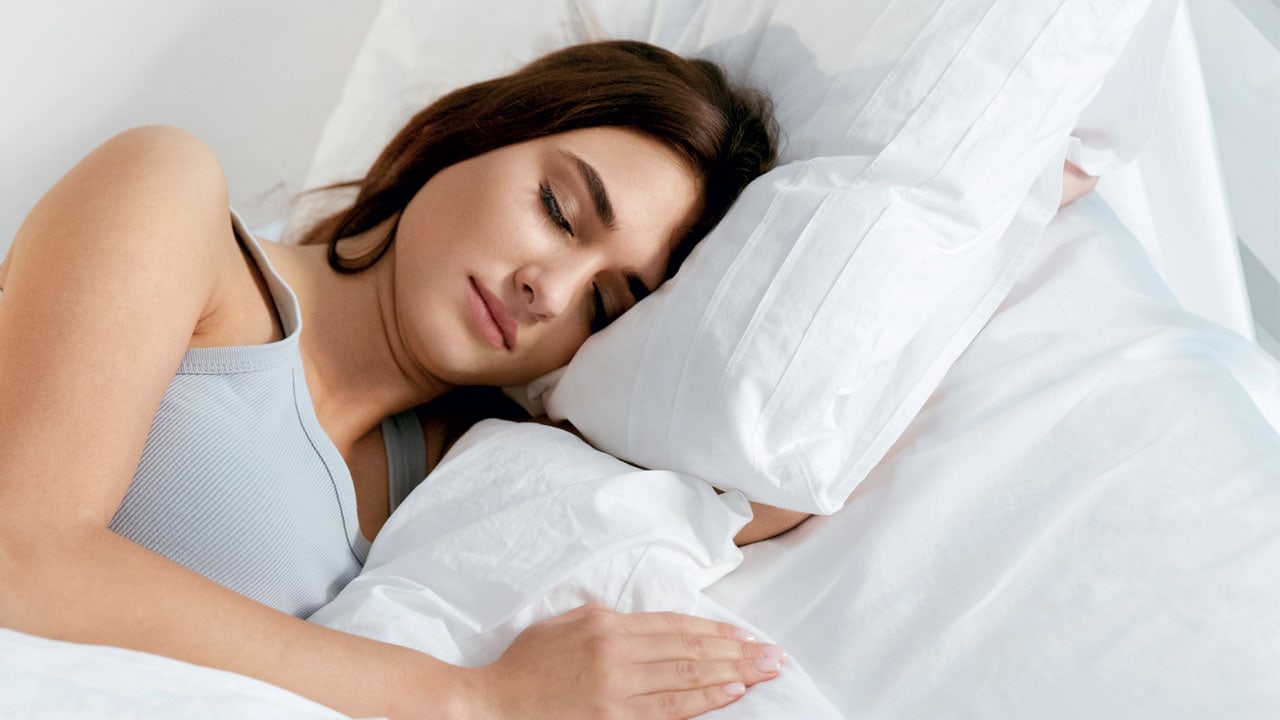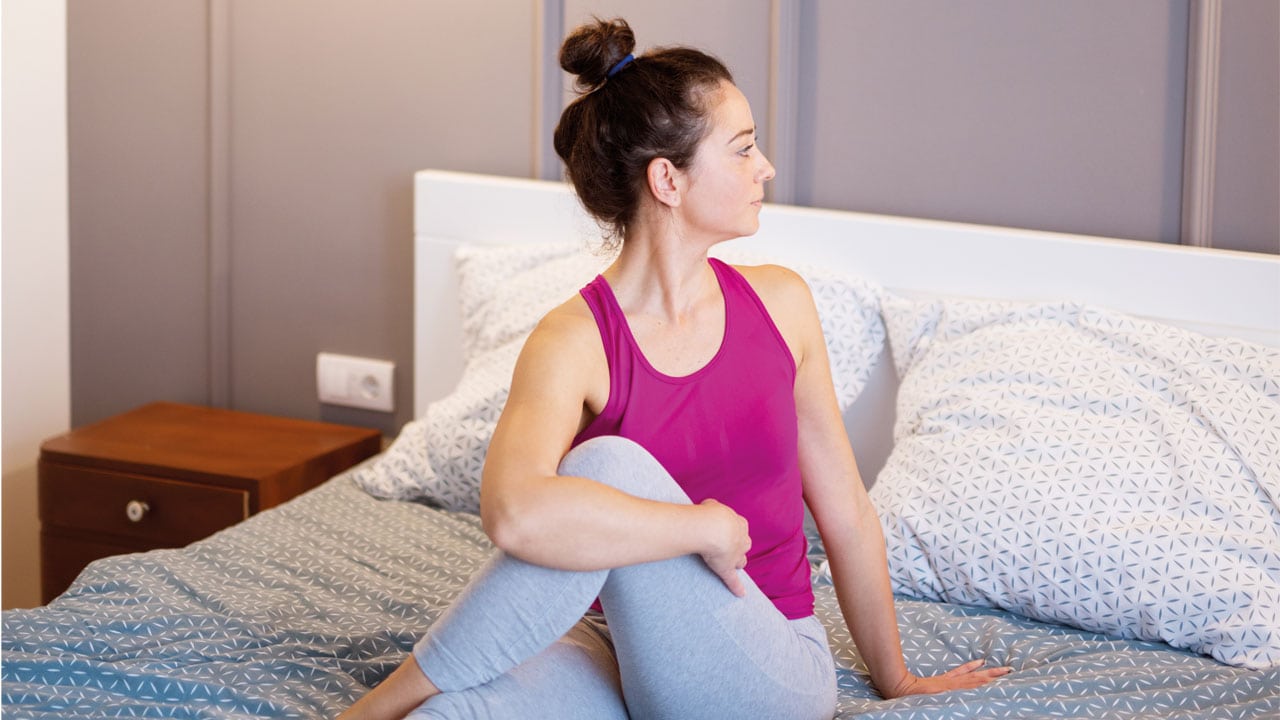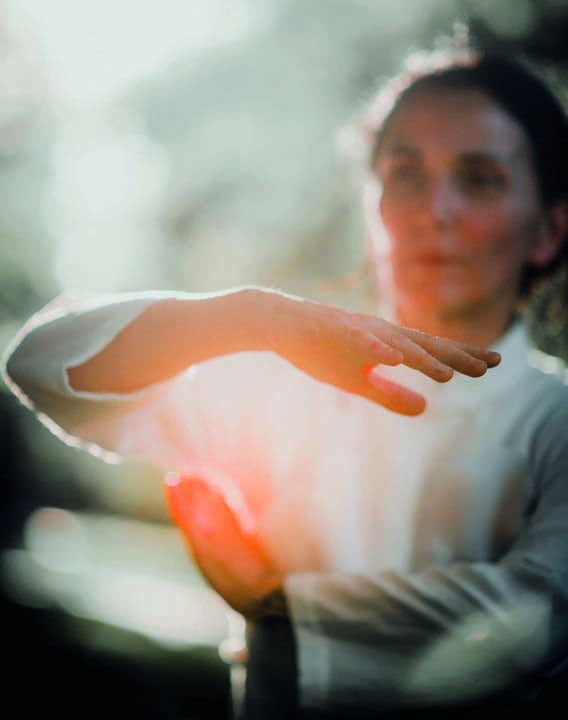
Yoga and sleep
Do yoga, sleep better. A round up of key evidence that shows how a yoga practice can help you get a good night’s sleep. By Fenella Lindsell
Studies on why, when and how we sleep have now captivated popular culture and the body of science around it grows weekly. Sleep science is increasing in popularity and while some areas remain more esoteric, such as dreaming, concrete research is coming to light with clear and practical application. The discoveries of this rapidly evolving science are clarifying why sleep is so vital to our physical and mental health and why exactly we need so much of it.
There are many factors seen to affect both quality and length of sleep. But in the last two decades, the relationship between yoga and sleep has emerged as a positive one. As we will see, many studies have shown how different types of yoga practice can have a profound influence on our quality of sleep and our levels of fatigue, anxiety and stress. By exploring different yogic traditions in this piece, like Sudarshan Kriya Yoga (SKY), Hatha and Tai Chi, it will become clear that yoga provides a positive pathway to improved sleep across a variety of population groups.
Sleep and health
As the body of scientific work grows, indisputable links have arisen between sleep, mood regulation, energy levels, concentration and wider-reaching implications on physical and mental health.
The question we are asking is no longer: Is sleep important? But rather: Why is sleep important?
To understand this more holistically, this article considers the differences between demographics when it comes to sleeping. For example, women typically experience more frequent interruptions to their quality of sleep at given periods in their life, despite typically experiencing a better quality of sleep compared to men.
Regarding age, the 2004 National Sleep Foundation study found that two-thirds of elderly adults report having at least one sleep disorder, often secondary to their comorbidities (other illness/disease). This is a worryingly high number. But improved sleep quality in these age groups has also been linked to improved quality of life, as we will soon see.
Beyond sex and age differences, we also see a drastically higher rate of sleep disorders among those with mental illnesses. For example, the Harvard Health publication on sleep and mental health (2021) found that 50-80% of patients in a typical psychiatric practice have chronic sleep problems compared with only 10- 18% of the general American public. Such problems are typically common in patients with anxiety, depression, bipolar disorder and ADHD, but also affect parents who have an Intellectual Disability Disorder child.
If the message has not hit home yet, sleep is a big deal with far-reaching effects on diverse groups of people on our planet. We spend about 25-32 years of our life sleeping, so it’s worth learning how to do it well. If we had to spend 20-plus years of our life doing anything else, we would quickly try to master this engagement, so why not sleep?
Yoga and sleep
Different yoga practices have affected sleep in respective ways. The practices outlined here are not necessarily the best or only means of attaining good sleep; they are, however, the most studied. As always with health advice, it is safest and most wise to begin with what we know and can prove. As the body of research grows in favour of yoga as a sleeping aid, we hope to see the practice elevated above currently limited pharmacological treatments to sleep.

Elderly adults (65 years+)
Elderly adults typically need an hour less sleep (7-8 hours) than those in the teenage and adult years (7-9 hours). However, at least two-thirds of elderly adults in America report some kind of sleep disturbance ranging from disturbed night-time sleep, struggles with falling asleep and reduced alertness in daytime associated with poor quality sleep. Not only does this deplete cognitive ability, but it can also exacerbate health issues.
The 2013 study by Bankar et al assessed how long-term yoga practice affected sleep quality and quality of life in an elderly population of both men and women. The response was incredibly positive. They found a significant increase in both qualities of sleep and quality of life with long yoga practice. The type of yoga was unspecified but had many characteristics of Hatha.
Another study from 2004 by Fuzhong et al explored how Tai Chi affects the quality of sleep and daytime sleepiness in elderly adults. The results found that participants engaged in Tai Chi slept an average of 48 minutes longer per night and took less time to fall asleep than those who did a low-impact exercise instead. The findings confidently concluded that Tai Chi “appears to be an effective non-pharmacological approach to sleep enhancement for sleep disturbed elderly adults.”
Female adults
As mentioned previously, it is more common for female adults to experience interruptions to sleep patterns. The following evidence explores how yoga can positively influence sleep for women in general and also those in specific circumstances like breast cancer recovery, prenatal depression and menopause.
In Wang et al’s 2020 meta-analysis, (a method that compares existing studies with one another) they looked at almost 2,000 female participants with existing sleep problems. Across the board, the studies showed that those who participated in yoga consistently had higher quality of sleep and in many cases, there was a direct link between the increased length of yoga practice and increased quality of sleep.
Another investigation focused on Tai Chi practice and prenatal depression. This 2013 study by Field et al showed that those prenatally depressed women who practiced Tai Chi yoga for 12 weeks had decreased symptoms of depression, reductions in anxiety and an improvement in both quality and duration of sleep.
A more recent study by Lu et al in 2020 found that yoga exercise combined with the Information Support Method also helped alleviate symptoms of depression and anxiety in menopausal women and you guessed it... improved their quality of sleep.
In a more specific circumstance, Bower et al’s 2011 study of breast cancer survivors with persistent fatigue found that yoga was a useful tool in raising energy levels. However, no significant differences in sleep were observed but fatigue was reduced in those who practiced yoga.
Approximately one-third of cancer survivors experience persistent fatigue and this evidence suggests that yoga provides substantial solutions that circumvent pharmacological intervention.
Non-specific groups
In mixed population studies, recent findings illuminate how young adults aged 16-25 may improve both alertness and focus through Sudarshan Kriya Yoga (SKY), a heavily breathing themed branch of yoga. This study by Chaudhari et al, 2020 found that novice practitioners engaging in this yoga showed consistently lower levels of daytime sleepiness based on the Epworth Sleepiness Scale (ESS). The results showed the greatest improvement was with obese participants and those who frequently spent time seated in a car.
A final noteworthy mention was the work done by Moszeik et al, 2020; looking at the effectiveness of a short Yoga Nidra meditation on sleep, stress and wellbeing. Across a large and diverse sample group, they found that regular practice of this 11-minute Yoga Nidra had a significant positive effect on all three: stress, sleep and wellbeing.
Conclusion
Well... the results are in! Yoga is beneficial to sleep and further, reduces stress, anxiety, and perhaps even supports cancer recovery. What is vital about these findings is that they offer an alternative pathway for sleep therapy that doesn’t involve drugs. Most therapies for sleep rely on chemical changes through prescribed medicine and these have been linked to withdrawal problems and a variety of side effects. Though not always negative, it is worth encouraging yoga as an alternative to these pharmacological approaches.
Fenella Lindsell is an experienced yoga teacher and yoga teacher trainer. Find out more at: yoga-forever.com





